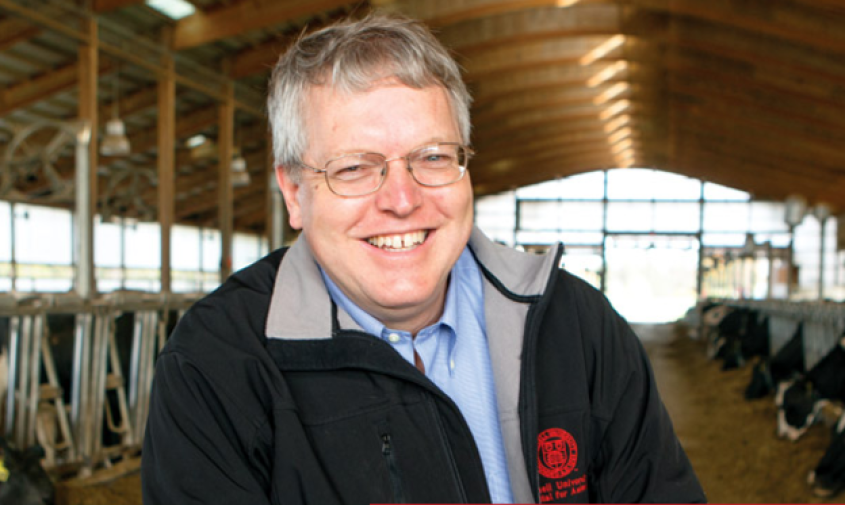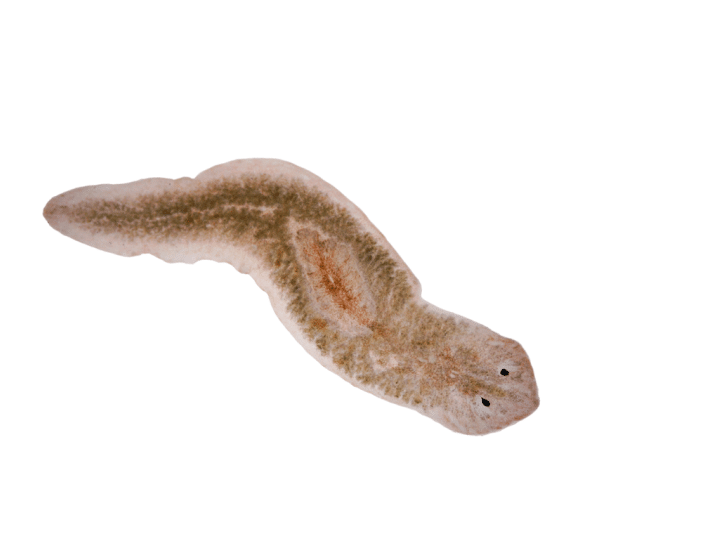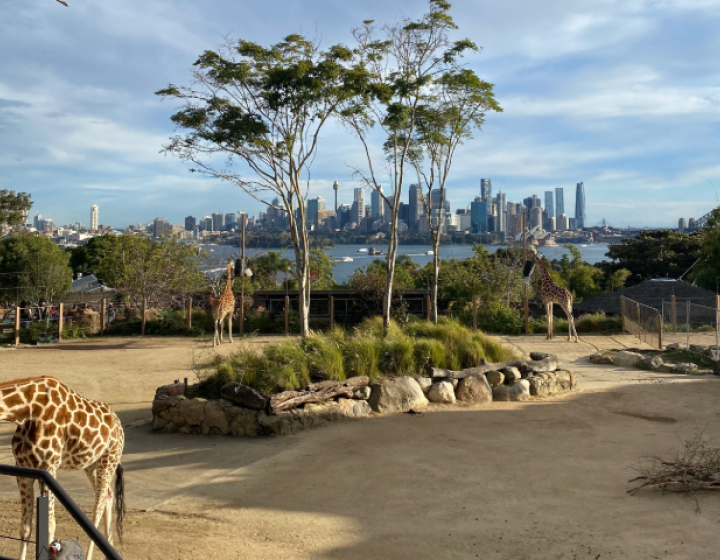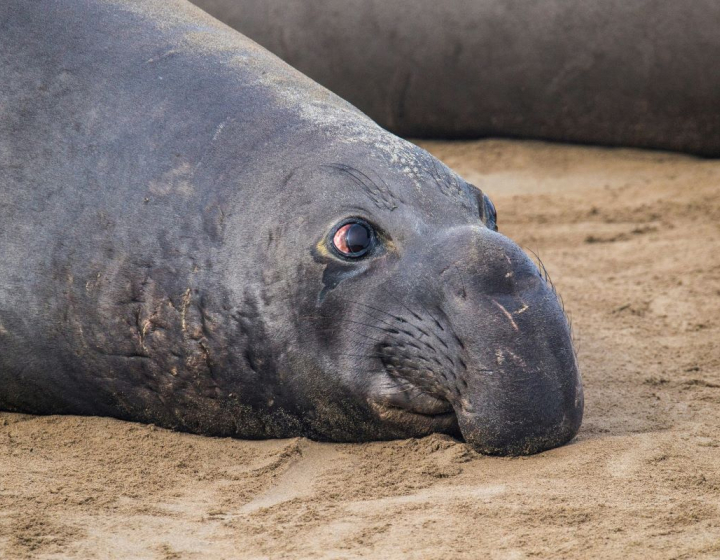Dean Warnick discusses animal care with Tata Trusts
A new standard for animal care
Animal healthcare is a new focus area for Tata Trusts, which is aiming to set up veterinary infrastructure and services in Mumbai in collaboration with Cornell University. Christabelle Noronha connected with Dr Lorin D Warnick, the Dean of the College of Veterinary Medicine at Cornell, to get his perspective on the animal healthcare scenario in India.
Dr. Warnick became dean last year and was interim dean for a year before that. A Cornell veteran, he has served as associate dean for veterinary education since 2007 and as director of the Cornell University Hospital for Animals since 2012. He is a professor of ambulatory and production medicine, and his research focuses on enteric bacteria such as salmonella that can cross species and lead to illness in humans. He has also researched the emergence of drug-resistant bacteria.
In this interview, he touches upon various topics such as his work at Cornell, why India needs an affordable model for quality animal healthcare, and how the upcoming centre is a step in the right direction. Edited excerpts:
You have been associated with Cornell in one capacity or the other for over 20 years. Could you please share the highlights of your career?
One of the highlights for me has been the opportunity to talk with students. For much of my career, I provided clinical service and instruction in large animal veterinary medicine and surgery on local farms. It was always rewarding to see students learn to diagnose and treat the important diseases we encountered.
As we drove between farms, I would quiz the students on topics related to the cases they had just seen. There was also plenty of time for students to talk about career aspirations, experiences with curriculum, views about the college, and on the profession in general. Eventually, the students would forget I was there, and that’s when the conversations got very free-flowing. I heard what was really going on at the college, their personal ups and downs — it was a very valuable insight into student life. The understanding I gained from conversations with hundreds of veterinary students have been a good foundation for my service in college administration. In my role as dean, I continue to listen closely to what students are saying and feel it is very important to have frequent and open communications on their experiences.
Another highlight for me has been the opportunity to engage in research and mentor graduate students. My research focus has been on bacterial infections of cattle that can be transmitted to people. We have studied the emergence and dissemination of antimicrobial resistant strains of bacteria — a critical animal and public health issue — using a combination of field epidemiology studies and microbial genetic techniques. It is very rewarding to recognize a clinical problem important to veterinarians and farmers, and then design and conduct research studies to investigate it.
You have been dean for a year and interim dean for some time before that. What is a typical day in the life of the dean of a vet college?
The work of the dean is varied and challenging — every day brings a mix of activities, ranging from critical decisions about the direction of the college to representing our programs to alumni, government representatives or national organizations.
A large portion of my time is dedicated to faculty. Whether through attending department meetings, presentations, or activities related to recruitment, tenure and promotion, a dean must be someone who cares deeply about the full spectrum of disciplines in the college and can develop funds, facilities, technologies, and other needs to support faculty initiatives. The dean is the faculty’s voice to the administration, and the ability to articulate the urgency and caliber of their work is of utmost importance.
Another major effort is focused on students. Whether by helping to define the class recruitment goals, advancing curricula to maintain and further expand the college’s preeminent status, or meeting with students to hear directly of their experiences, the dean must be connected with their day-today development as future practitioners and scholars in their own right.
I also devote time to engaging alumni and other supporters of the college to secure gifts and grants that provide research dollars, scholarships, and brick-and-mortar projects so that the faculty and students have the resources they need to realize their academic aspirations.
At Cornell, and particularly in the College of Veterinary Medicine, time is set aside for engagement in our community, be that locally, regionally, at the state level, or beyond. We have strong international programs, so my day frequently includes communication with international collaborators, hosting visitors from around the world or travel to destinations around the US or abroad.
A part of most days is spent engaging in staff issues and helping ensure we have a great work environment.
I also continue to work on my own research investigating salmonella epidemiology and antimicrobial resistance in enteric bacteria, and I do some teaching in topics related to cattle medicine, epidemiology and veterinary business management.
What is your assessment of the field of animal healthcare in India? What are the obvious gaps and what does it take to start bridging these gaps?
Currently, there are important needs and opportunities to expand animal healthcare in India. That is why Tata Trusts’ decision to invest in changing animal care standards as well as build the infrastructure needed to improve the level of quality healthcare is so important. Their efforts, along with partner organizations and the government, will build veterinary capacity and jumpstart innovations in animal healthcare. The Cornell University College of Veterinary Medicine is excited to be part of this important effort.
Increased access to preventive medicine, which benefits both animals and people, is an important issue to tackle early on. Perhaps the best example is how rabies vaccination programs worldwide can help reduce the incidence of a disease that kills 59,000 people a year — India has the largest number of fatalities of any country with over 20,000 deaths. The new multi-specialty veterinary hospital set-up in Mumbai will help lead the way by providing a model for affordable, high quality medical care for companion animals, and in so doing, will both improve animal welfare and human health.
Animal healthcare is a rapidly changing profession, and practicing veterinarians and technicians need access to a variety of continuing education opportunities, trainings, workshops and programs. Fortunately, many of these opportunities will be provided through the new Tata Trusts project.
What would be the most critical fields of specialist medicine required for animals in India?
To meet the various healthcare needs of animals, it is essential to offer a mixture of treatments such as orthopedics, oncology, dentistry, dermatology and trauma surgery. As important as the clinical specialties is the need for robust wellness and preventive healthcare as well as client education on animal care and nutrition. The new veterinary hospital and emergency clinic in Mumbai will offer these services. In addition, the clinic will offer a variety of training opportunities for practicing veterinarians and technicians to learn about these fields, which will help increase access throughout the country.
What does India have to offer the animal science field in terms of knowledge? For instance, are there unique insights on the treatment of tropical diseases or in cattle care that emanate from India?
From new approaches in husbandry of buffalo and dairy cattle to the treatment of specific diseases — like horn cancer — India’s veterinarians and farmers have a wealth of knowledge to share with the world’s veterinary community.
Innovations in animal husbandry practices — like Gujarat’s animal hostel — are quite entrepreneurial and offer economic advancement to India’s rural farmers, while improving food quality and the sustainability of livestock production. This approach of cooperative cattle management and the conservation of natural resources is being looked at in other countries as a model to solve problems that are common for smallholder farmers around the world.
In addition, with a rapidly growing companion animal population, India is uniquely positioned to become a leader in establishing best practices for the region.
There is a crying need for more animal care centers and hospitals. Yet, income levels (especially among dairy and poultry farmers) are not high enough to make healthcare affordable. What can be done to break this vicious cycle?
Tata Trusts is taking the first step by trying to increase the capabilities of veterinarians and technicians or para-veterinarians in India. By helping train veterinary health professionals in a setting that provides the highest quality of care, the project can act as a force multiplier, with impacts that hopefully radiate throughout India.
There is also a significant opportunity to identify affordable and accessible solutions to critical healthcare needs. Faculty and staff from our college have much to share based on our experience in offering clinical care and education in the US and internationally, but it is critical that we partner closely with veterinarians and professionals in India to understand the local landscape and needs so that our collaboration will lead to effective and sustainable programs.
In this context, what are the plans for the animal hospital in Mumbai?
The new Mumbai veterinary hospital and emergency clinic will serve the needs of companion animals across a spectrum of service needs. It will provide high-quality medical care for animals including specialized services such as orthopedics, imaging, dentistry, trauma surgery and other treatments. It will also provide round-the-clock emergency care and preventative medicine, particularly for those animals who don’t have a formal owner who could assume responsibility for payment.
In this way, the Animal Care Center will provide a service to both animals and the community. In so doing, it will set a standard for what the veterinary industry in India can provide.
From a workforce perspective, the hospital and clinic will offer education and training opportunities for practicing veterinarians and technicians. This will not only increase the variety of healthcare options available, but will also help increase access throughout the country
This story first appeared in the Tata Trusts' publication, Tata Review.






